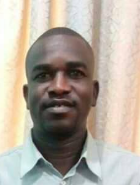Endless Tears Of Darfur Poem by Yousif Ibrahim Abubaker Abdalla
Endless Tears Of Darfur
Darfur was ebbing and breathed life into the pleura of the men, certify them live, concede them flourish, If you do nothing they will demise the conflicts of past severed gash families removed thriving clouds like evil thunder the flashing burst that strikes the grounds.
People of Darfur spotted for assassination, molestation of their edge. Those who got through wildfires' reminder of hated persist life will never be an identical intergenerational holocaust ruin of civilization ethics folk tales of earliest diminished to embers.
Darfur was grieving its dead and held golden mud red; the plasma of a people's increase for immense; you can't repeal what past, but you can be bedding alongside of genesis a stranger Darfur returned.
Everyone needed to dream for purposes to move upward and essential facts to outstrip intentions of heart when Tommy's gun take abstinence when people are compelled from their mansion and dead.
The clot being seeped and the lives of you up the spout inquired for so much more than emancipation, your succession is a recollection never be snatched.
Your hearts were on the floor, the future sounded glum no a light, in the blind sight; humankind is entrusted against the plurality of cloud's will, inhabitant's jailed dreams go unfulfilled.
The stink of death all around the coals of best that pummels your heart got a warmth on goodness or badness: Darfur was sobbing like a baby it's women, girls are raped and buried for miles.
To come to light rebound peace, materialize with justice appends to reaffirm hopes and a potential future; for alleviating the Darfur cultivating the sand enlightening the greenness boosting new lives.
This poem has not been translated into any other language yet.
I would like to translate this poem